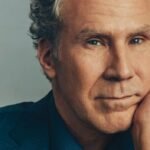Scottish Labour leader Anas Sarwar has urged the SNP to shift its focus from constitutional disputes to economic growth, telling party leaders they must create a more welcoming environment for international investors—particularly from long-standing allies like the United States.
Sarwar’s remarks came during a high-profile address coinciding with Tartan Week celebrations in New York, where Scotland’s global cultural influence is front and centre. But rather than dwell on heritage alone, Sarwar used the occasion to issue a pointed message: Scotland needs to open its doors, not close ranks.
“Growth, Not Grievance”
Sarwar’s central argument was blunt.
“If Scotland is to thrive in a globalised economy, we must prioritise growth over grievance,” he said. “That means ending the inward-looking rhetoric, restoring investor confidence, and building partnerships based on shared prosperity—not political point-scoring.”
While he did not name First Minister Humza Yousaf directly, the criticism was unmistakable. Sarwar suggested the SNP’s continued push for independence—amid declining support and internal fractures—is driving away investment and casting uncertainty over Scotland’s economic future.
His comments reflect a broader repositioning of Scottish Labour as the “party of economic credibility,” seeking to capitalise on the SNP’s recent slide in polls and Reform UK’s disruptive rise across key constituencies.

An Economic Case for Cultural Kinship
Sarwar’s speech leaned heavily into Scotland’s transatlantic connections, painting a picture of opportunity forged by heritage and history.
“Few nations share a cultural bond as enduring as that between Scotland and the United States,” he said. “This isn’t just about tartan and tunes. It’s about deep-rooted family ties, mutual values, and an appetite for innovation.”
Referencing the Scottish Enlightenment’s influence on the U.S. Constitution, Sarwar argued that Scotland’s historic impact on global affairs must be matched by an economic vision that welcomes today’s investors.
His timing was strategic. Thousands of Americans with Scottish ancestry gathered in Manhattan this week for Tartan Week, a celebration that showcases both nostalgia and soft power. Sarwar tapped into that sentiment, calling on Scots to turn cultural influence into economic action.
A Subtle Swipe at SNP’s Foreign Posturing
In recent months, the SNP has ramped up its global diplomacy efforts, often using events like Tartan Week to promote the case for independence on an international stage.
Sarwar, by contrast, framed global engagement as an economic opportunity—not a platform for grievance politics.
“Scotland should not use its global voice to repeat constitutional arguments. We should use it to build economic bridges, attract talent, and position ourselves as a hub of innovation and creativity,” he said.
Labour’s Economic Pitch: Stability, Certainty, Growth
Labour’s economic narrative is increasingly built around certainty and pragmatism. With the general election expected later this year, Sarwar’s speech served as both an international signal and a domestic challenge.
Scottish Labour’s economic platform includes:
-
A new industrial strategy focused on green energy, biotech, and advanced manufacturing
-
Targeted tax incentives to attract U.S. and European investors
-
Skills training and education reforms to boost workforce readiness
-
A reset of Scottish government–business relations
The message is clear: while the SNP continues to focus on independence, Labour intends to position itself as the party that gets things done.
Global Investors Watching Warily
Sarwar’s comments may resonate beyond political circles. A recent EY Scotland attractiveness survey noted a cooling of investor sentiment amid ongoing political uncertainty. Concerns cited by business leaders included:
-
Lack of policy continuity
-
Overlapping devolved and UK-wide regulations
-
Unclear tax and energy investment strategies
Sarwar’s promise to restore clarity and foster global partnerships is a calculated move to court both business leaders and swing voters alike.
The Bigger Picture: Who Speaks for Scotland Abroad?
As Scottish identity continues to play out on a global stage—from diaspora parades in New York to trade missions in Brussels—the fight over who represents Scotland’s vision is intensifying.
For Sarwar, that answer should not lie with independence campaigners but with leaders focused on jobs, growth, and global engagement.
“Scotland’s best days lie not in looking inward, but in opening our arms to the world.”


















